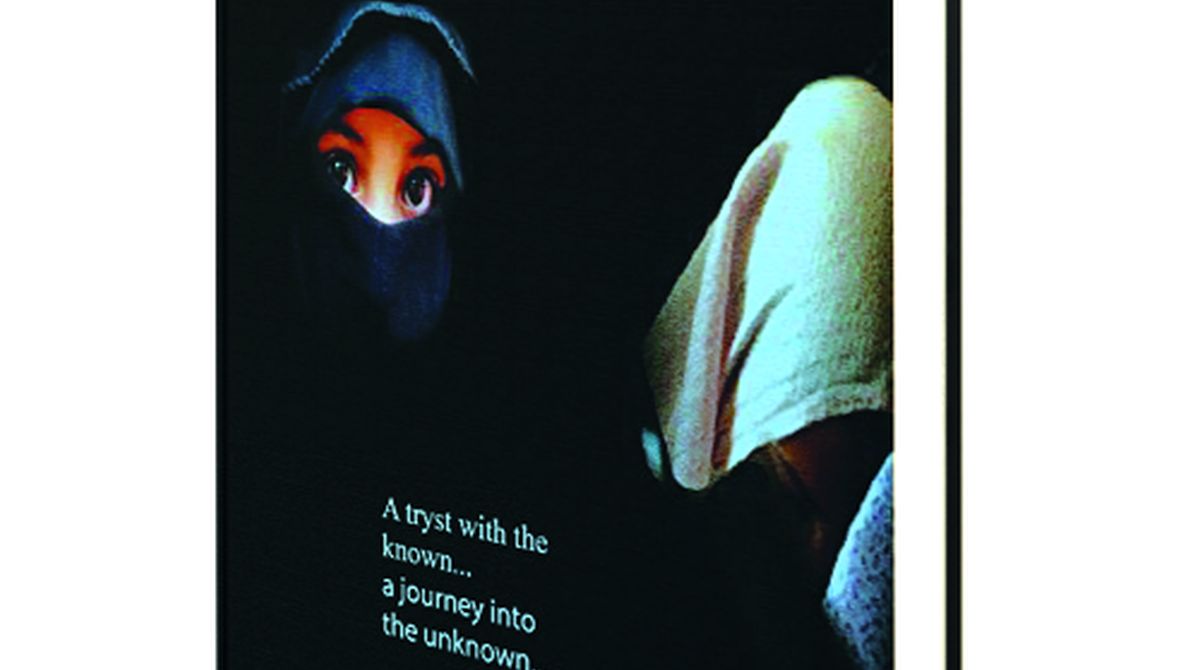Modi hopes to break 2014 and 2019 records under Yogi’s leadership
The prime minister hoped of an unexpected victory for the BJP in the 2024 Lok Sabha elections attributing it to CM Yogi's commitment to good governance and development.

Zarina is a Kindle e-book that explores the psychology of love that transcends communal and religious barriers. It centres on the deep bond between Priya, a Sindhi Hindu woman and Zaheer, an educated Muslim man from Uttar Pradesh after they meet in the US.
The editor of Power Politics magazine, Hari Jaisingh, whose distinguished career as editor, columnist and writer encompasses a wide spectrum of publications including National Herald, Indian Express and The Tribune group, and has authored critically acclaimed books about India’s socio-political workings, has opted to write on a subject that is almost taboo today. He goes where, in a sense, angels fear to tread — the grey area of inter-faith marriage, between persons representing communities, seen to be at odds with each other historically.
Does this owe to recklessness, or honesty, stemming from the realisation that the dynamics of human relations steer their own course? Or is it an attempt to assert an individual’s right to make her/his own choices, in contravention of social pressures? Whatever be the inspiration, Priya’s first-person account tracks her own gradual transition from a beloved daughter of Sindhi parents, displaced by India’s Partition and forced to rebuild their lives in Lagos in Nigeria, where the girl has an amorous encounter; and then, New York, to a woman who chooses to marry out of her own faith and community, much to her parents’ initial dismay.
Advertisement
And then, to compound their discomfort, of her own free will dons another persona, that of Zarina, presumably to adjust better with her marital family in UP although her husband, who emerges as a tolerant figure, never tells her to do so. However, her mother-in-law when she first meets Priya after the couple’s relationship crystallises, does propose the change. The girl resists it at first, but in the course of her post-marital journey, spontaneously subsumes her birth identity in her spouse’s, while affirming that her inner being remains the same — that of Priya.
The situation, in fact, is not unique. It applies to most women across cultures as the key to a successful marriage is seen to vest in female adaptability or submissive womanhood. From the standpoint of gender and feminist discourse, it is controversial terrain. Jaisingh’s clear insight into the mind of a woman who is in love and wishes to settle into family life invokes English poet Lord Byron’s intuitive understanding of female sensibilities,
Man’s love is of man’s life a thing apart. ‘Tis a woman’s whole existence.
As the author seeks to get under the skin of the narrator, he makes an effort to establish that this is no calculated love jihad scenario, hinging on coercive tactics of courtship and marriage, foisted by predatory Muslim males on susceptible Hindu females so as to expand the domain of Islam. Of course, history does testify to marriages between Mughal men and Rajput women for reasons of political expediency. But the painful communal spillover of Partition fuelled identity politics, with even inter-caste unions being shunned. Truant couples are harassed, even killed by feudal custodians of morality.
The contentious issue of love jihad has in recent years provoked uncivil tirades and religious bigotry, compelling police and judicial intervention at times as public reactions threaten law and order, and couples’ lives. Whether inter-faith unions are a deliberate ploy to enhance Muslim numbers and alter India’s demographic profile is not the subject of Jaisingh’s book. On the contrary, his interest is purely in the nuances of a woman’s relationship with the man she marries and then, her assimilation into his world.
The narrative strives to make the point that Priya is drawn to Zaheer from the time she gets to know him in New York, and her surrender to her new life and identity as wife and daughter-in-law arises voluntarily from her deep bonding with her husband and desire to connect to her in-laws. The change from Priya to Zarina mirrors her own longing.
Essentially, the story highlights traditional family values across nations, faiths and cultures that determine a female’s social roles, whatever be her religion — her progression from daughter to wife, to daughter-in-law, and subsequently mother. It is the very basis of family life, grihasthashram, and, by extension, society, and comprises the matrix of the story.
The book spans continents — from Sindh, to Africa, then shifts to the US, and then India, and then back to the US — with the denouement affirming Priya’s — reborn as Zarina — identity as an individual, a woman, a wife within conventional parameters. There is no conflict here, and the author’s lucid narration finds its logical corollary.
It is an insightful foray into love, not jihad. Zaheer, Priya’s husband, remains a quiet, firm presence who spurs her transformation without overtly asserting himself. That perhaps is true of most women’s lives, with the shift to womanhood being a matter of tactful adjustment.
The reviewer is a senior journalist
Advertisement